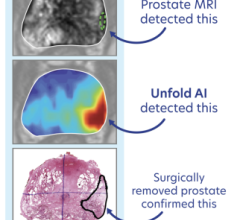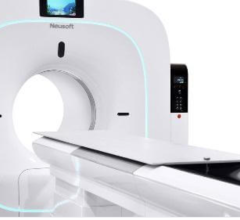
September 18, 2015 — A recently developed drug was significantly better at detecting recurring prostate cancer in early stages, in research published in the August 2015 issue of The Journal of Nuclear Medicine. In the study, the imaging agent — Ga-68 prostate-specific membrane antigen (Ga-68 PSMA) — used with positron emission tomography and computed tomography (PET/CT), changed management in 44 percent more cases than another widely used agent.
"This is the first prospective comparative trial evaluating detection rates and management impact of the more widely available radiopharmaceutical F-18 fluoromethylcholine (FMC) and the recently developed Ga-68 PSMA PET tracer agent in men with prostate cancer," said Joshua James Morigi, M.D., lead author of the study. "We specifically addressed men with prostate cancer and low PSA levels, at which current imaging techniques struggle in detecting disease."
The researchers, of St. Vincent's Hospital, Sydney, Australia, evaluated 39 prostate cancer patients who had rising PSA following first-round treatment and were eligible for further targeted therapy. Patients on systemic treatment were excluded. Ga-68 PSMA PET/CT, F-18 FMC PET/CT and diagnostic CT were undertaken in all patients sequentially between January and April 2015 and assessed by masked, experienced nuclear medicine physicians. Researchers then documented scan results and management impact changes, together with histological follow-up, if feasible. Of the patients enrolled, 89 percent had only their prostate gland removed, while the other 11 percent were post-radiation treatment.
"Our main finding is that even at extremely low PSA levels (<0.5), PSMA was able to detect sites of possible recurrence in 50 percent of patients while FMC detected possible recurrence in only 12.5 percent," Morigi states. "As a result of these high detection rates, PSMA also demonstrated a very high management impact in our patient cohort (63 percent), having an added value over FMC in 44 percent," he continued. "These findings have important ramifications for the management of men with early biochemical failure and suggest that imaging-guided therapy even in low PSA range may be possible."
Histological follow-up was available for nine patients (24 percent), and nine out of nine PSMA-positive lesions were consistent with prostate cancer. The one lesion positive on FMC and negative on PSMA resulted at biopsy as a false positive. Researchers concluded that in patients with biochemical failure and low PSA, PSMA demonstrated a significantly higher detection rate with a high overall impact on management. This suggests that Ga-68 PSMA PET/CT will be an effective imaging tool for early detection of prostate cancer recurrence.
For more information: www.jnm.snmjournals.org


 July 30, 2024
July 30, 2024 








